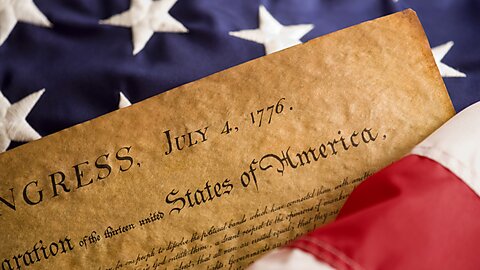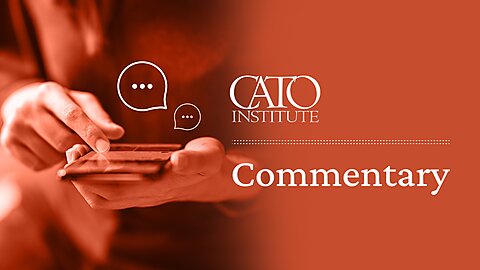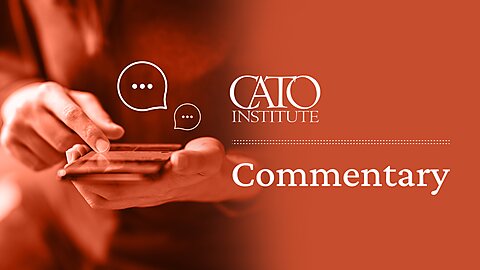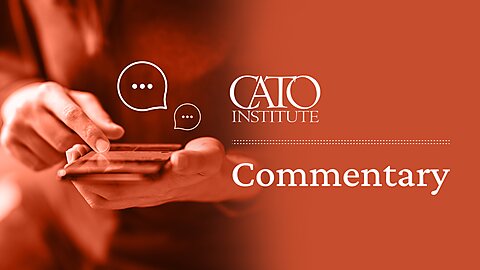
This 4th of July, 248 years after the Declaration of Independence was adopted, a new forthcoming Cato Institute national survey finds 76% of Americans have a favorable opinion of the founding of the United States and 59% feel “gratitude” about what the Declaration eventually secured. But Americans fear the freedoms made possible by the American founding are at risk. Nearly three-fourths (74%) of Americans worry that if we’re not careful, Americans could lose the freedoms we have in this country.
An overwhelming majority–85%–of Americans have a favorable view of the US Constitution. However, 70% of Americans believe that if the signers of the Declaration of Independence were alive today they would disagree with how the Constitution is being followed.
Notable shares of young Americans feel a sense of complacency or negativity toward the nation’s founding and the US Constitution. About a third (34%) of Americans under 35 have either an unfavorable view or simply don’t care. In contrast about a quarter (28%) of Americans aged 35–54 and 12% of Americans over 55 years old have similarly negative or complacent views.
There are also considerable knowledge gaps—especially among young people. In particular, 50% of Americans under 30 don’t know that Thomas Jefferson was the primary author of the Declaration of Independence. Nearly a third (32%) didn’t know that the Declaration of Independence led to the American Revolutionary War.
Views of the US Constitution
Nearly 9 in 10 Americans say they have a favorable view of the U.S. Constitution, including 53% who have strongly favorable views. Most Americans also believe that the U.S. Constitution is what guards their liberty. Ninety-four percent (94%) say the US Constitution is “important” to protect their liberty and freedom, including 56% who say it’s “extremely important.”
The survey asked how important specific rights and freedoms were to people, personally guaranteed by the US Constitution or through judicial interpretation. The following said each of these were “extremely” important to them personally:
77% The right for all people to have equal protection under the law
76% The right to privacy
75% If accused of a crime, the right to be informed of the accusation and evidence
75% The right to vote
74% Freedom of speech
71% The right to own private property
70% If accused of a crime, the right to a fair, speedy, and public trial
70% If accused of a crime, the right to have a trial by a jury
68% Freedom of religion
68% The right to be free from unreasonable search and seizure from gov’t
68% The right to due process of law
67% Freedom for people to assemble peacefully
65% The right to travel
62% Freedom of the press
61% The right to marry
61% The right to self-defense
57% Freedom to petition the government
54% If convicted of a crime, the right not to have a cruel and unusual punishment
39% Freedom to keep and bear arms
The top five rights that were most important to Americans include the right for all people to have equal protection under the law (77%), a right to privacy (76%), to be informed of any accusation and evidence if accused of a crime (75%), the right to vote (75%), and the freedom of speech (74%). Notably, only two of these five were included in the Bill of Rights, the first ten amendments to the Constitution.
The freedom to “keep and bear arms” received far less enthusiasm, with only 39% who said it was “extremely important” to them. Yet nearly double that share (61%) said a “right to self-defense” was extremely important to them. This demonstrates that many Americans do not view the Second Amendment protection to keep and bear arms as the same as a right to self-defense.
Partisan Priorities
It should be emphasized how much Democrats and Republicans similarly prioritize most rights secured by the Constitution. For instance, both similarly value the right to have equal protection, to assemble, to vote, to travel, to marry, to have privacy, to own private property, to petition the government, as well as the freedom of the press, and if accused of a crime to have a fair trial, but informed of accusations and evidence, and to avoid cruel and unusual punishment. But there are some important differences too.
Republicans are nearly 50 points more likely than Democrats to say it’s extremely important to them to have the right to keep and bear arms (66% vs 17%), and 33 points more likely to have a right to self-defense (79% vs 46%). Notably, Republicans are also nearly 25 points more likely than Democrats to prioritize being free from unreasonable search and seizure from the government (84% vs 61%). More Republicans than Democrats also care deeply about the freedom of religion (79% vs 62%), the freedom of speech (81% vs 69%), and due process of law (75% vs 64%). Democrats (60%) stood out in that they were more likely than Republicans (49%) to say that having the right to a trial by jury was extremely important.
Redesigning the United States Constitution
A significant minority (44%) of Americans would be open to “writing a new American constitution to reflect our diversity as a people,” while 56% would oppose writing a new constitution. This builds upon the work of political scientist Eric Kaufmann who found a similar pattern of results.
Democrats stand out with 63% who favor writing a new constitution, compared to 16% of Republicans and 37% of independents. A majority (54%) of Americans under 30 also favor designing a new constitution. However, support drops among older cohorts including among those aged 30–44 (47%), 45–54 (40%), 55–64 (27%), and 65 and above (25%). Black Americans (73%) and Asian Americans (60%) also support designing a new constitution. In contrast, majorities of Hispanic Americans (56%) and White Americans (68%) oppose designing a new constitution.
Preserving and Extending Liberty
A majority of Americans–57%–agree that “eternal vigilance is the price of liberty.” Eleven percent (11%) disagree while 31% aren’t sure either way. Even more, 74% worry that if we aren’t careful we could lose our freedoms in this country. About a quarter (26%) of Americans believe our liberty will be preserved.
While both Democrats (68%) and Republicans (80%) worry about the future of liberty in the United States, Democrats are somewhat more likely than Republicans to be confident their freedom will remain protected (32% vs 20%). Young Americans under 25 (41%) are about twice as likely as Americans over 65 (21%) to be confident the liberty they enjoy will continue into the future as well.
Knowledge of American History
The survey quizzes Americans’ knowledge of the country’s founding. Fortunately, majorities of Americans got most answers correct. However, some groups were less likely to know the nation’s history.
Who was the primary author of the Declaration of Independence?
57% Thomas Jefferson (CORRECT)
7% James Madison
7% Alexander Hamilton
5% Abraham Lincoln
4% George Washington
20% Don’t Know
What war did the Declaration of Independence lead to?
72% The American Revolution (CORRECT)
10% The American Civil War
3% World War I
1% The French-Indian War
1% The Mexican American War
14% Don’t Know
How many colonies were there when the American colonists declared their independence from Great Britain?
76% 13 colonies (CORRECT)
2% 5 colonies
3% 8 colonies
2% 50 colonies
17% Don’t Know
Who rode in a famous midnight ride to warn the American colonists that the British were coming?
81% Paul Revere (CORRECT)
3% John Adams
2% Alexander Hamilton
1% Robert Livingston
13% Don’t know
Who famously crossed the Delaware River to eventually lead the Americans to victory against the British in the American Revolution?
69% George Washington (CORRECT)
2% Thomas Jefferson
2% Benedict Arnold
5% Ulysses S. Grant
4% Robert E. Lee
17% Don’t Know
Who famously described the US Constitution as “a republic, if you can keep it”?
26% Benjamin Franklin (CORRECT)
8% Thomas Jefferson
6% James Madison
6% Alexander Hamilton
4% George Washington
51% Not sure
Young people know less about American history than older cohorts. For instance:
50% of Americans under 30 didn’t know that Thomas Jefferson was the primary author of the Declaration of Independence, compared to 34% among Americans over 55 years old
32% of Americans under 30 didn’t know that the Declaration of Independence led to the American Revolution, compared to 19% among Americans over 65 years old
33% of Americans under 30 didn’t know that there were 13 original colonies when the American colonists declared independence from Britain, compared to 13% among Americans over 65
36% of Americans under 30 didn’t know Paul Revere had a famous midnight ride to warn the American colonists the British were coming, compared to 1% of Americans over 65
44% of Americans under 30 didn’t know George Washington famously crossed the Delaware River to lead the Americans to victory against the British compared to 11% of Americans over 11
1619 Project
Most Americans (56%) reject a central premise from the New York Times’ 1619 project that preserving slavery was a primary cause of the American Founding—a view renowned historians reject. Sixteen percent (16%) of Americans believe preserving slavery was a “primary” reason prompting the war, and 22% aren’t sure either way.
Views of the American Founders
The plurality of Americans’ favorite “Founding Father,” or prominent figure who played a significant role in the Revolution and the establishment of the United States, is George Washington with 35%. Second to Washington is Benjamin Franklin (22%), followed by the primary author of the Declaration of Independence Thomas Jefferson (16%), then John Adams (5%), Alexander Hamilton (5%), John Hancock (4%), James Madison (3%), John Jay (1%) or someone else (9%).
A majority (57%) of Americans view the “Founding Fathers” as “heroes” rather than villains (3%), but a considerable minority view them as both heroes and villains (43%). A majority (53%) of Democrats view the founders as both heroes and villains and 42% view them as heroes. In stark contrast, 74% of Republicans view them as heroes while 25% think of them as both.
Few Americans support removing statues dedicated to prominent figures including George Washington (82% oppose monument removal), and Thomas Jefferson (82% oppose monument removal). No demographic group identified in the survey supported removing these monuments.
While some Americans have concerns about the American founding—an overwhelming share of Americans—94%—believe the Declaration of Independence was primarily a force for good in the world.
The Cato Institute 2024 4th of July Survey was designed and conducted by the Cato Institute in collaboration with YouGov. YouGov collected responses online June 26-July 1, 2024 from a national sample of 2,000 Americans 18 years of age and older. Restrictions are put in place to ensure that only the people selected and contacted by YouGov are allowed to participate. The margin of error for the survey is +/- 2.41 percentage points at the 95% level of confidence. Full results, toplines, crosstabs, and methodology are forthcoming.




















